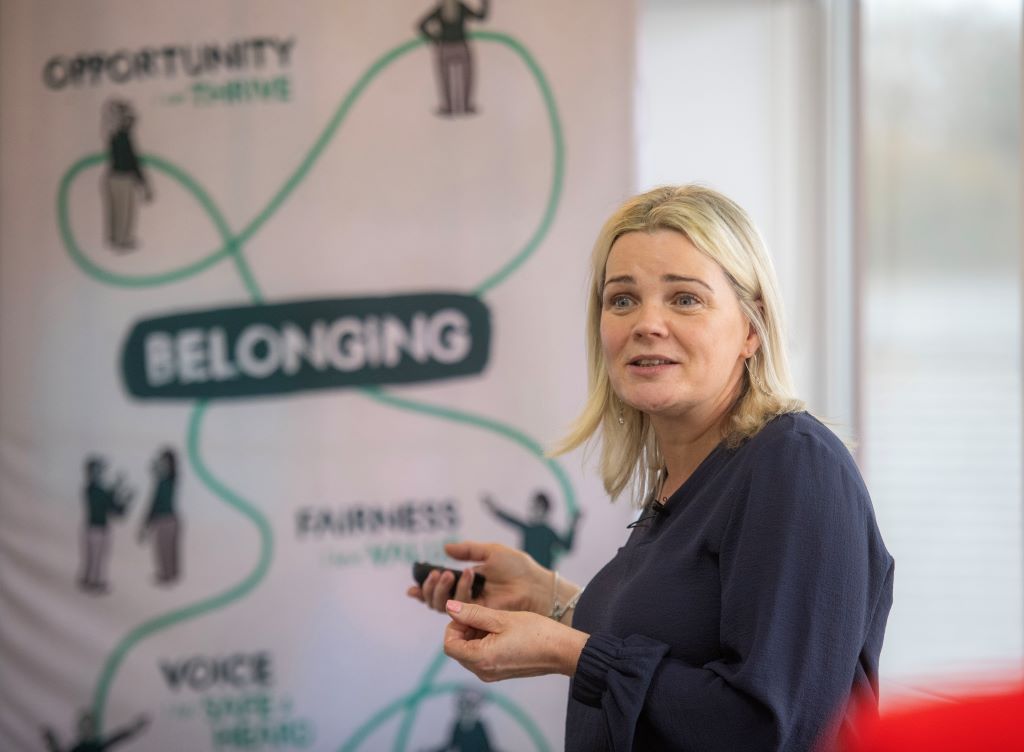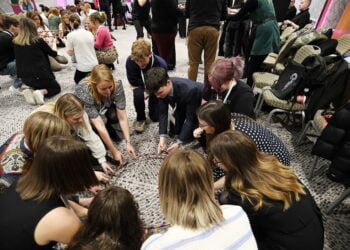
One of the UK’s leading authorities on inclusivity in the workplace has visited the Cumberland Building Society to share her insights.
Dr Grace Lordan, an associate professor in behavioural science at the London School of Economics, led ground-breaking research for Women in Banking and Finance, which the Cumberland helped to fund.
Many of her findings were incorporated in Belonging, the Society’s new diversity and inclusion strategy, which ensures that all Cumberland staff feel valued, visible and heard.
The Belonging strategy aims to ensure everyone at the Cumberland – regardless of gender, ethnicity, age or neurodiversity – feels they have an opportunity to progress, that their voice is heard, their opinion matters, they can speak up freely and feel valued.
Cumberland chief executive Des Moore said inclusivity was a priority for the society while chief people officer Jill Johnston said the intention was to make the Cumberland a place “where people bring their best selves”.
Dr Lordan said it was really fantastic that Belonging was putting into practice ideas from her work on inclusivity around opportunity, visibility and voice.
She said: “Where you don’t have opportunity, visibility and voice you have group think where some people are ignored and few people are listened to. In meetings, the same people are always speaking. You want diversity because different cognitive perspectives lead to a better outcome.”
She argued that group think led to poor decision making and weak morale.
She added: “Women in the middle of their career often leave, not for childcare reasons, but because they are not being listened to.”
Fifty Cumberland workers attended Dr Lordan’s talk, at the society’s head office in Carlisle, and took part in a Q&A session.
Dr Lordan’s work sets out what needs to happen for women to have a better experience in the workplace. The Cumberland has already made great strides in this area, improving its maternity benefits and providing support for women going through the menopause.
As recently as 2018, only 19 per cent of its senior leadership and board roles were held by women. Today the proportion is 50 per cent, an achievement the society celebrated to mark International Women’s Day earlier this month.










